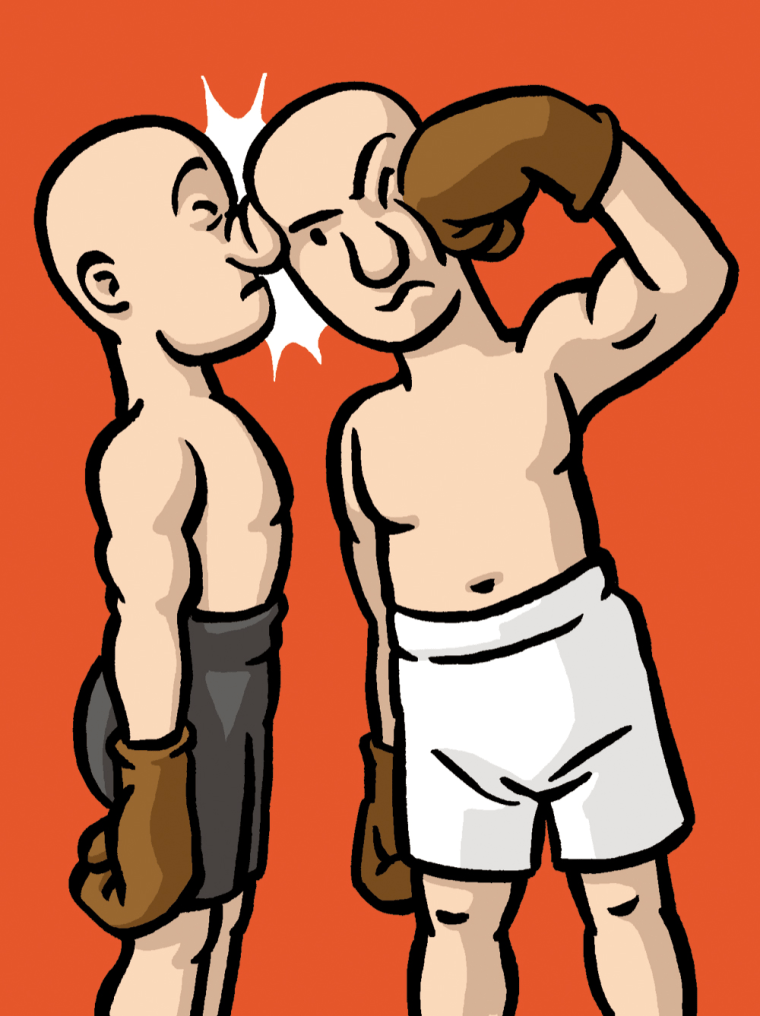In the spring of 1988, television and movie writers went on strike. The strike, which lasted for twenty-two weeks, was rhetorically bitter and economically destructive: it cost an estimated half billion dollars in lost revenues and wages and sent network ratings down by 9 percent. But the walkout had only limited impact at the negotiating table: When an agreement was finally reached, it looked very much like a deal that could have been made five months earlier. The strike almost certainly cost both sides more than the sums they had been fighting over.
Twenty years later, entertainment writers are on the picket lines once again. They may do better this time, but history is against them. Walkouts may call to mind labor triumphs like the Flint sitdown strike of 1936-37, which gained union recognition for the United Automobile Workers at G.M., but most don’t end that well—nor do they generally end as badly as the 1981 air-traffic controllers’ strike, in which everyone got fired.
Instead, strikes often end tepidly, with no major gains or rollbacks, and economists have found that, on average, strikes these days have little, if any, impact on what workers get paid. (Paradoxically, unions raise worker wages, but strikes generally don’t.) Given the negative economic consequences—lost paychecks for workers and lost business for employers—the economically rational thing for both sides is usually to settle before the walkout starts. So why don’t they?
One obvious hurdle to a settlement is that neither side knows what the other’s true position is. In economists’ terms, strikes happen as a result of “asymmetric information”—when one side knows more than the other about the real economics of the situation.
Entertainment writers, for instance, want a share of the revenue generated from their work in new media, including programs streamed on the Internet. Producers insist that they need flexibility with regard to new technologies and that it’s too early to know how much they can afford to pay for streaming programs. This may be just a bluff, or it may contain some truth—it’s hard for the writers to know the difference. Going on strike is one way to find out.
If a company concedes quickly, that’s a sign that it was just bluffing. If it’s willing to endure a long strike, that may be a sign that it meant what it said. That’s why the longer a strike lasts, the less likely it is to produce a big victory for either side: you’re willing to cut a deal after a long strike that you wouldn’t have been willing to cut before in part because the strike has told you that the other side wasn’t just bluffing.
Even if negotiators are acting in good faith, it’s still hard to settle. Both sides, to begin with, are likely overestimating their chances of victory, thanks to the well-documented tendency people have toward overconfidence. A strike isn’t always a mistake: Sometimes workers do win big. But if both sides think a strike will help their cause at least one of them must be wrong. Overconfidence also exacerbates what the economists Linda Babcock and George Loewenstein call “self-serving bias”—the tendency for self-interest to warp our perceptions. In one famous study from the 1950s, people were asked to watch a Princeton-Dartmouth football game and count the number of penalties they saw committed. Princeton fans saw Dartmouth commit twice as many flagrant fouls as Dartmouth fans did. As the researchers put it, each group of students appeared to be watching “a different game.”
Similarly, Babcock, Loewenstein and some colleagues ran an experiment in which people were assigned to the side of the plaintiff or the defendant in a tort case and then asked to analyze the case and simply predict what the judge’s award in the case would be. Everyone looked at the same evidence. Yet those on the plaintiff’s side predicted a much bigger award than those on the other side did. The way one sees the facts, in other words, is literally shaped by the outcome one desires. So while the networks may be spinning when they claim that showing programs over the Internet (for which writers usually don’t get paid) is completely different from showing programs on TV (for which writers do), they may simply have convinced themselves that their cause is just.
And justice matters quite a bit in strikes, which often turn more on questions of fairness than on strict economics. Fairness doesn’t matter much in conventional economics, which assumes that, if you and I can make a deal leaving us both better off, we’ll make it. But, in the real world, if the deal seems unfair to me I may very well reject it, even if doing so leaves me worse off. The quintessential example of this is the so-called ultimatum game, where participants offered a share of a ten-dollar bill by a fellow-participant will actually turn down the free money if they think their share isn’t big enough.In the same way, a capuchin monkey who’s being rewarded for working with another monkey will often refuse to participate if she sees her partner get a better reward. And in a series of experiments run by the economists Simon Gaechter and Ernst Fehr people prove willing to pay in order to punish those who act unfairly.
Readiness to pay a price in order to enforce an idea of what is right is part of what keeps sides from settling: Writers accept the loss of paychecks because they believe they deserve a cut of the revenue from their work, and producers accept the loss of business because they believe that TV shows and movies are their property. The paychecks and the profit-and-loss statements may indicate that the writers and the producers should be able to resolve their dispute quickly. But in labor relations the bottom line isn’t always the bottom line.
